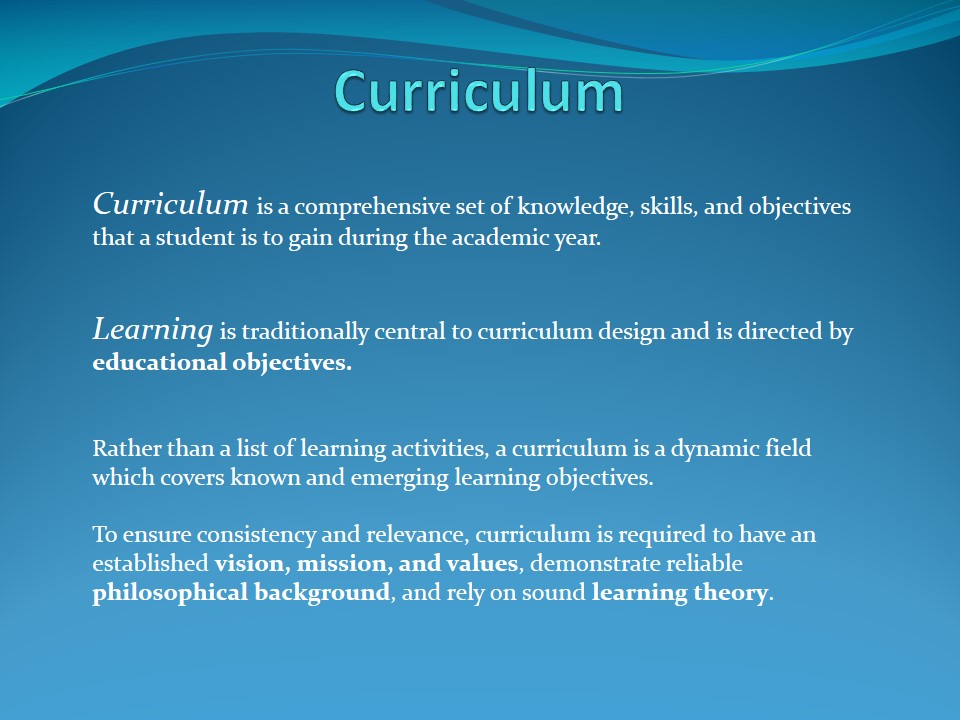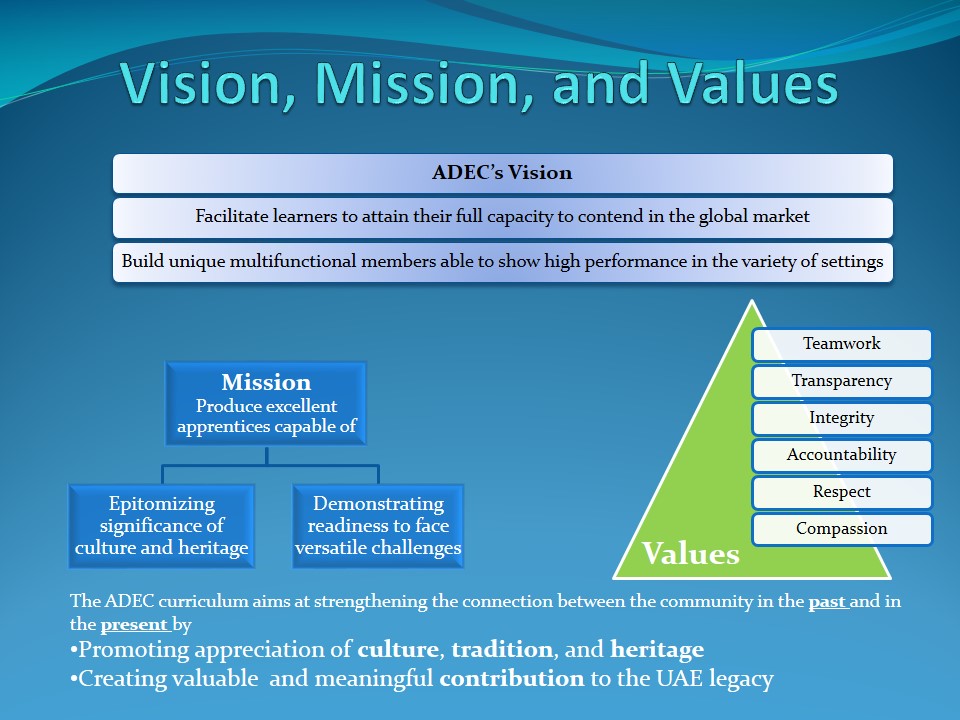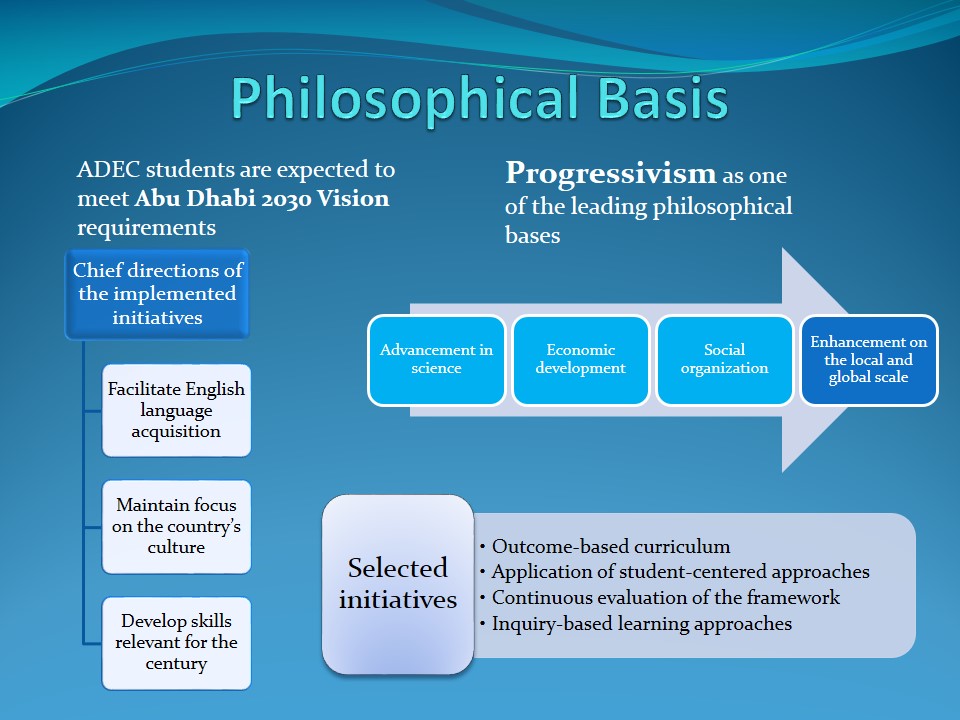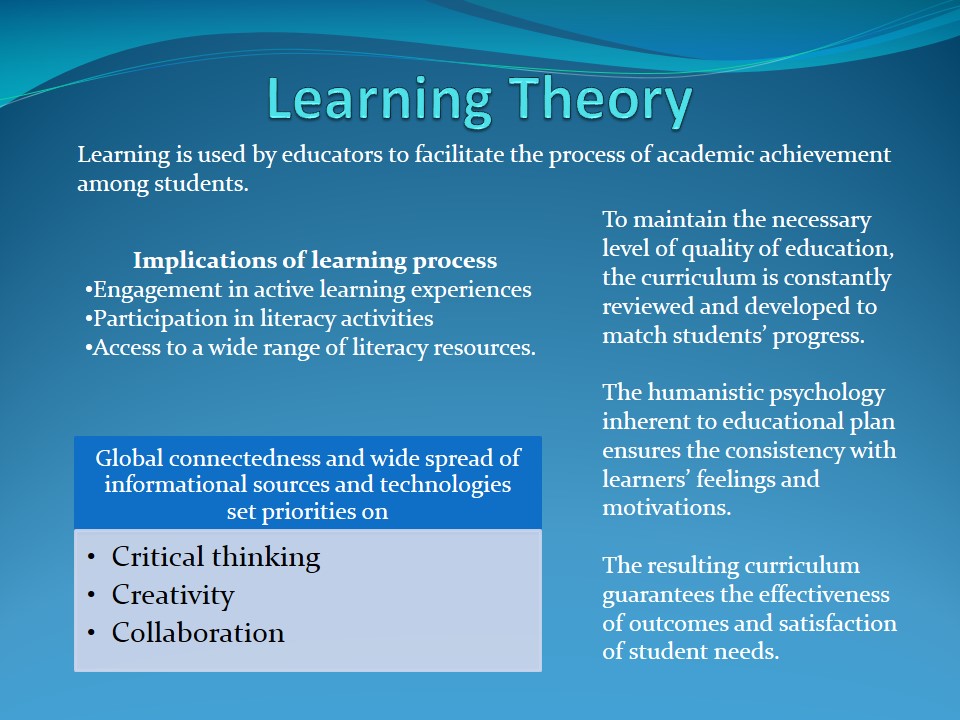Curriculum
Curriculum is a comprehensive set of knowledge, skills, and objectives that a student is to gain during the academic year.
Learning is traditionally central to curriculum design and is directed by educational objectives.
Rather than a list of learning activities, a curriculum is a dynamic field which covers known and emerging learning objectives.
To ensure consistency and relevance, curriculum is required to have an established vision, mission, and values, demonstrate reliable philosophical background, and rely on sound learning theory.

Vision, Mission, and Values
ADEC’s Vision:
Facilitate learners to attain their full capacity to contend in the global market.
Build unique multifunctional members able to show high performance in the variety of settings.
- Values:
- Teamwork;
- Transparency;
- Integrity;
- Accountability;
- Respect;
- Compassion.
- MissionProduce excellent apprentices capable of:
- Epitomizing significance of culture and heritage.
- Demonstrating readiness to face versatile challenges.
The ADEC curriculum aims at strengthening the connection between the community in the past and in the present by:
- Promoting appreciation of culture, tradition, and heritage.
- Creating valuable and meaningful contribution to the UAE legacy.

Philosophical Basis
ADEC students are expected to meet Abu Dhabi 2030 Vision requirements:
- Chief directions of the implemented initiatives:
- Facilitate English language acquisition;
- Maintain focus on the country’s culture;
- Develop skills relevant for the century.
Progressivism as one of the leading philosophical bases:
Advancement in science → Economic development → Social organization → Enhancement on the local and global scale.
- Selected initiatives:
- Outcome-based curriculum;
- Application of student-centered approaches;
- Continuous evaluation of the framework;
- Inquiry-based learning approaches.

Learning Theory
Learning is used by educators to facilitate the process of academic achievement among students.
- Implications of learning process:
- Engagement in active learning experiences;
- Participation in literacy activities;
- Access to a wide range of literacy resources.
To maintain the necessary level of quality of education, the curriculum is constantly reviewed and developed to match students’ progress.
The humanistic psychology inherent to educational plan ensures the consistency with learners’ feelings and motivations.
The resulting curriculum guarantees the effectiveness of outcomes and satisfaction of student needs.
- Global connectedness and wide spread of informational sources and technologies set priorities on:
- Critical thinking;
- Creativity;
- Collaboration.
